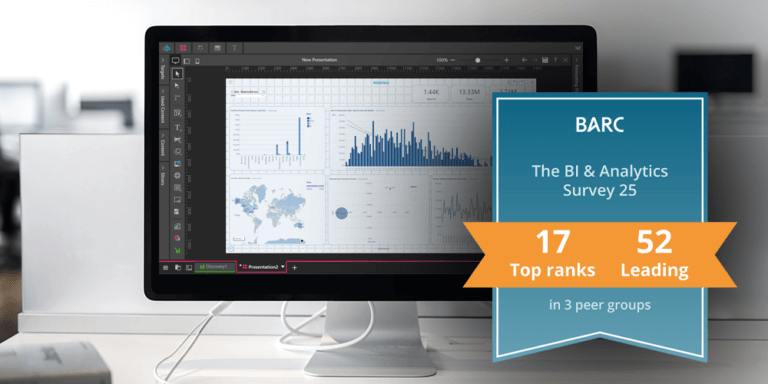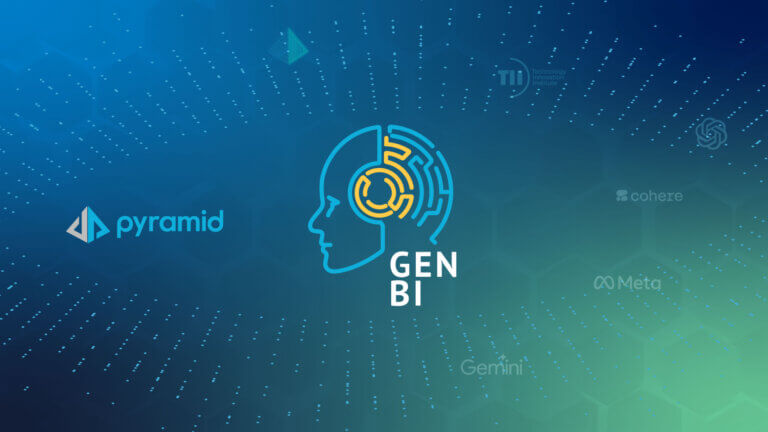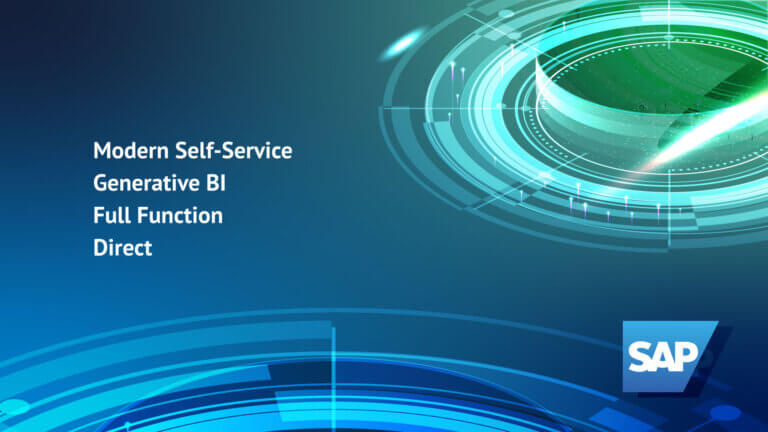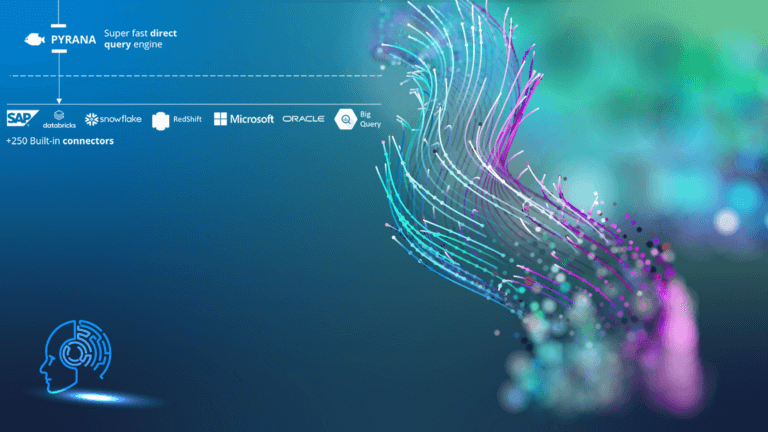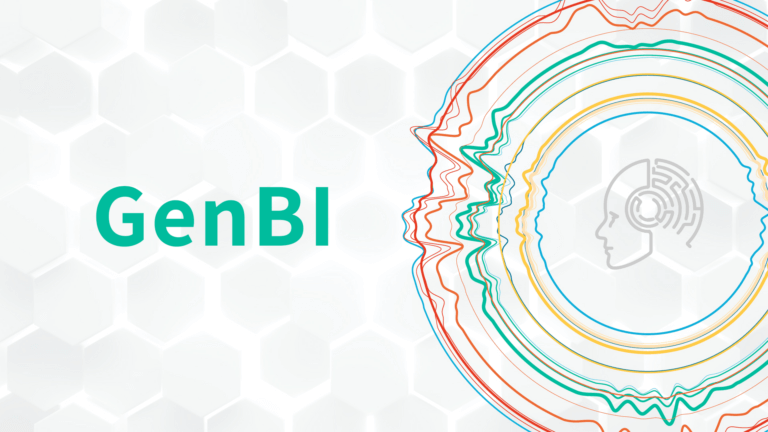Most companies understand that business intelligence (BI) is a crucial tool that can (and should) have a deep impact on every aspect of their business operation. Almost every company uses dashboards and reports to keep track of performance, but that’s about where it ends.
If we’re being honest, most companies just don’t make the most of their data and that’s mainly because traditional BI and analytics tools are stuck in the past. They’re powerful, but often too complicated, too intimidating, or just not designed with different users in mind. They’re typically built for data scientists or technical teams who then have to service the entire company for anyone to make sense of them.
Instead of focusing on strategic projects that transform the company, data teams have become technicians producing reports for other departments. This creates bottlenecks, frustrations, and often leads to decisions based less on data and more on hunches.
The future of analytics isn’t just about collecting more and more data, everyone is already doing that, and they’re getting lost in it. The future is about making sense of data and making it easier for everyone within the organization— not just data scientists and IT folks—to access, understand, and use it.
This is where generative BI (GenBI) comes in, and I believe it’s about to change everything. Harnessing the power generative AI, GenBI can finally bridge that gap and put data-driven insights into the hands of decision makers in every level of tech savviness.
A turning point for BI
Organizations used to view BI as a nice-to-have. If they had the budget, they might invest in a few analytics tools for crunching numbers and making a pie chart or two. But, today, BI is the engine that drives strategy, operations, and growth.
Data has become a company’s most valuable asset, with some even referring to it as the new oil. But, just like oil, raw data is useless unless it’s refined. That’s where analytics comes in, transforming raw information into actionable insights.
The problem is that many of today’s analytics tools weren’t designed for everyone to use. They’re complicated, limited, and require a lot of technical know-how. So, while companies are collecting mountains of data, only a small percentage of their employees are actually using it to make decisions. This has to change.
Enter generative BI
Imagine if, instead of struggling with a BI tool, you could just talk to your data like you would to a colleague. Instead of all the technical terms and lines of code required by a traditional analytics tool, you may simply say “How was our sales performance last year on the East Coast?” or “What’s making customers churn in the SaaS category?” Instead of having to navigate through menus or run complicated queries, with GenBI you’d just get instant, clear answers based on live data, presented in any way that’s convenient to you, whether it’s charts, graphs, or a verbal explanation.
Now, open your eyes because there’s no need to imagine: It’s already happening. By combining generative AI with BI tools, we’ve created an all-in-one platform, here at Pyramid Analytics that allows anyone in the organization, regardless of their technical background, to interact with the data and gain meaningful insights through normal speech.
Democratizing data with GenBI
In the past, if you wanted to analyze sales trends or understand customer behavior, you’d have to go through an analyst or the IT department and request a report or dashboard to answer your questions. This would take days and sometimes weeks and create bottlenecks. After all, data teams have enough on their plates without everyone in the company hounding them for reports.
With GenBI, you no longer need to bother them, you can just interact with data using everyday language that regular humans speak. Now, marketing teams, salespeople, and frontline employees can all make smarter, faster decisions based on hard data, instead of guesswork.
Augmenting, not replacing, human judgment
Of course, every time we talk about AI, everyone starts asking the big question: Will AI replace humans? My answer is of course not, at least not when it comes to making critical decisions. GenBI is designed to augment human intelligence, not replace it.
AI is incredible at processing data, spotting patterns, and making predictions based on these findings. But it doesn’t have intuition, nor does it understand the nuances of your market or the complexities of your company’s strategy. That will always be left to the humans. The real magic is when the strengths of AI combine with our all too human creativity, experience, and judgment.
An AI, for example, may tell you sales are declining in a certain region and very confidently blame prices for being too high. That can be a useful insight, but before you start slashing prices, you’d need to consider other factors that could be affecting sales like market conditions, seasonality, competitors, and brand positioning, to name a few.
If you simply go with the suggested pricing change without considering the whole picture you could find yourself still losing business and making even less money. GenBI can offer insights but it’s up to the human to consider all the elements and decide how and when to act upon it.
AI could never replace people who are curious, excited, and engaged. These people will be asking the non-trivial questions and bringing their own perspectives into the mix, while AI will be there to provide the information they need and walk them through the journey.
Building a data-driven culture
If there’s one thing I’ve learned, it’s that technology alone isn’t enough to transform how companies use data. Culture matters just as much. You can have the best BI tools in the world, but if your team isn’t on board, this won’t make a difference.
Creating a data-driven culture starts at the top. Leaders need to set the tone by making data a central part of every conversation. At the same time, employees need the tools and training to feel confident enough to use data in their day-to-day work. The goal isn’t to turn everyone into a data scientist, it’s to make data feel approachable and relevant.
GenBI can make people comfortable with making data-based decisions because it can feel almost like talking to someone who cares about the company and understands the business. Someone who can offer insights but also has all the time in the world to discuss them and estimate the impact of potential solutions. So, when you have this conversation with GenBI and it tells you to reduce the price, you can feel more confident about the impact this would have.
Breaking down silos
Another big challenge is breaking down data silos. In too many organizations, data is fragmented across different departments and tools. The marketing team uses one system, Operations uses another, and Finance has its own thing going on. This fragmentation makes it even harder to get a clear, unified view of the business.
GenBI can solve this. By securely interacting with data from different sources on a single, user-friendly platform, it creates consistency and reduces complexity for end users. It also makes it easier to spot trends, identify problems, and act on opportunities across the organization.
The future of BI
I’m incredibly optimistic about where analytics and BI are headed. By making analytics accessible to everyone with GenBI we’re not just empowering businesses, we’re transforming them.
In the future, I see BI becoming as natural and essential to all business functions as emails are today. Just like we don’t think twice about checking our inbox, we won’t hesitate to ask our data for insights. It’ll be seamless, intuitive, and embedded in everything we do.
This is more than a technological shift, it’s a cultural one. And for organizations willing to embrace it, the possibilities will be endless.
This article is based on Pyramid CEO Omri Kohl’s conversation with Richie Cotton, on the DataFramed podcast.







